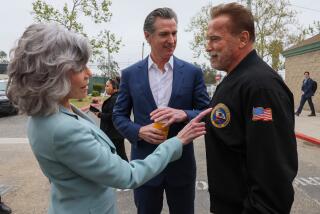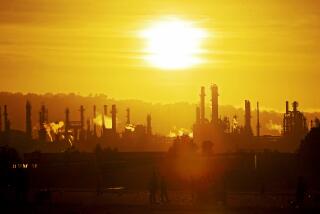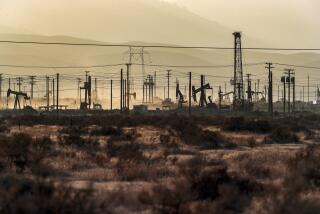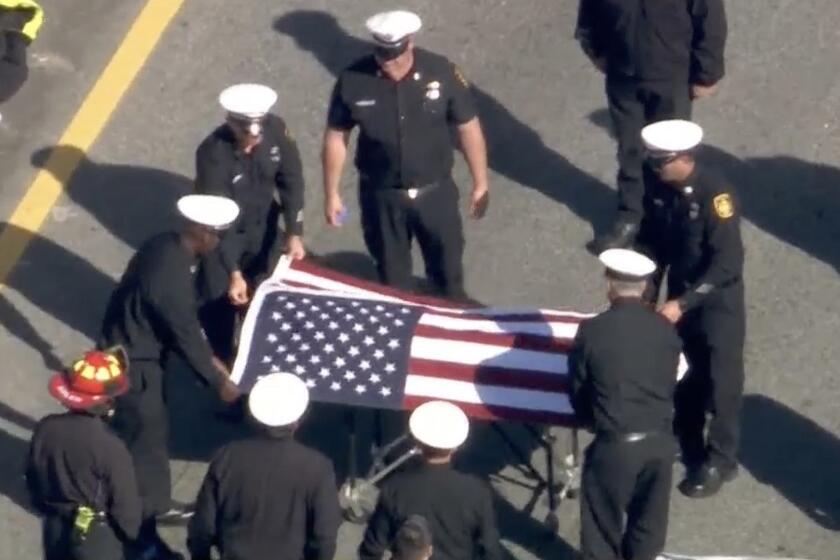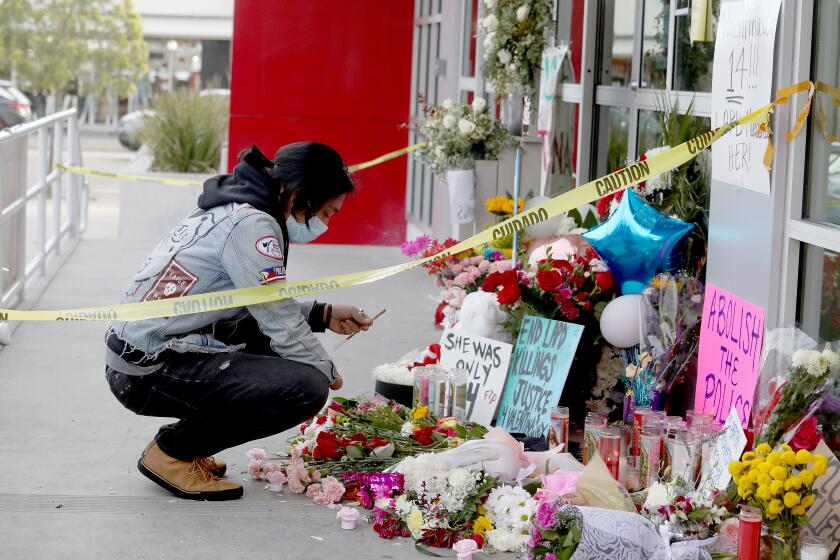Doubts voiced on fracking oversight at California hearing
SACRAMENTO — State lawmakers voiced doubts Tuesday that the Brown administration’s proposal to regulate hydraulic fracturing is tough enough to protect public health and safety — and questioned whether the state’s oil regulators could be trusted to enforce it.
State senators convened a joint legislative hearing to review the draft regulations, which represent California’s first attempt to govern the controversial drilling process known as “fracking.”
Although the proposed rules would require energy companies to disclose many of the chemicals they inject deep into the ground to break apart rock and release oil, some lawmakers said the regulations should go further, including advance notice to nearby landowners and water monitoring around fracking operations.
Though fracking has unlocked vast amounts of previously unreachable fossil fuels elsewhere, environmentalists and public health advocates in California have raised safety questions about the hundreds of chemicals used — many of them known carcinogens — and the potential for drinking water contamination.
At Tuesday’s hearing, county elected officials and representatives of local and state environmental agencies joined in calling for more disclosure.
“We want to know if someone spills, what they spill,” said Jonathan Bishop, chief deputy director of the State Water Resources Control Board.
Oil companies say they have used the technology safely for decades in California. Nevertheless, representatives testified that they supported mandatory reporting to allay public concerns.
Lawmakers questioned the adequacy of the proposed venue for disclosure, FracFocus, a national fracking registry the industry helped create online to allow for voluntary reporting. Some senators said the disclosure reports should be public records maintained on a state website.
Jason Marshall, chief deputy director of the state Department of Conservation, countered that it would take at least five years for the agency to build its own database, calling FracFocus an “off-the-shelf, available-to-use-now tool.”
Lawmakers also questioned the diligence of the state’s oil agency, citing a 2011 audit from the U.S. Environmental Protection Agency that urged tighter extraction standards after finding that regulators were not adequately protecting potential drinking water.
“No regulations are going to make any difference if we don’t have qualified inspectors and enough numbers to actually enforce those regulations,” said state Sen. Hannah-Beth Jackson (D-Santa Barbara).
Tim Kustic, the state’s oil and gas supervisor, assured lawmakers that his agency had taken steps to correct deficiencies in the oversight program.
State Sen. Jean Fuller (R-Bakersfield) lauded regulators for their more aggressive approach and cautioned her colleagues against excessive regulation of the oil industry, one of the state’s economic powerhouses.
Some government agencies aren’t waiting for the state’s lengthy rule-making process. The South Coast Air Quality Management District, which regulates air quality in Southern California, has already drafted its own fracking rules and is to vote on them in April.
More to Read
Start your day right
Sign up for Essential California for news, features and recommendations from the L.A. Times and beyond in your inbox six days a week.
You may occasionally receive promotional content from the Los Angeles Times.
